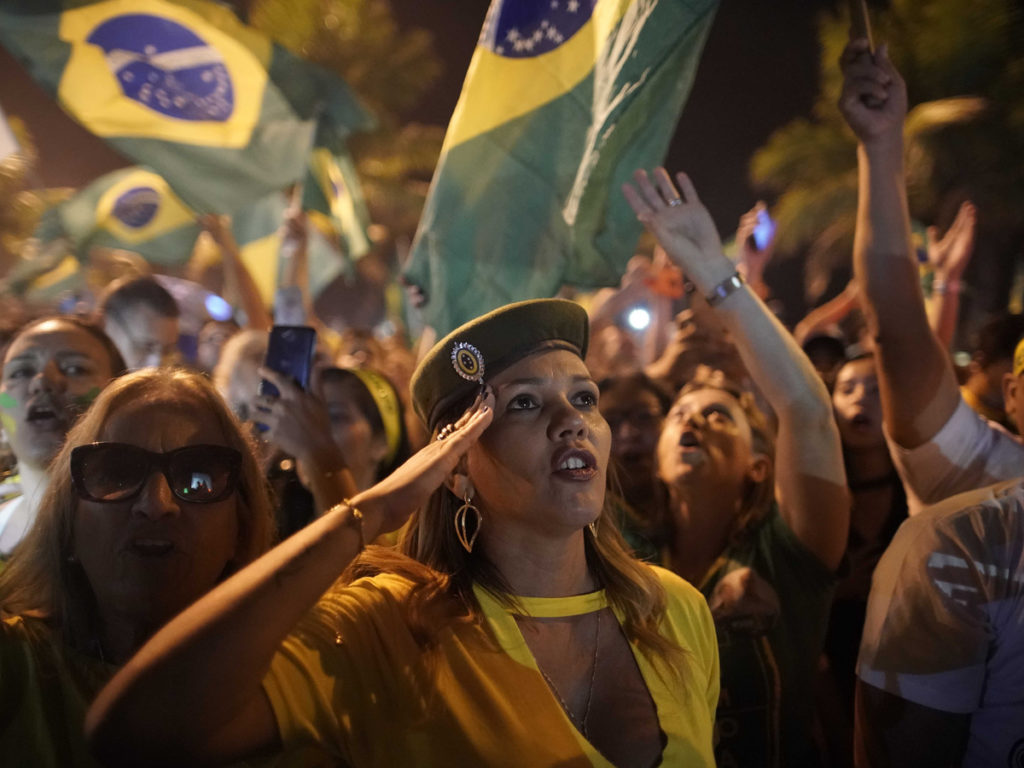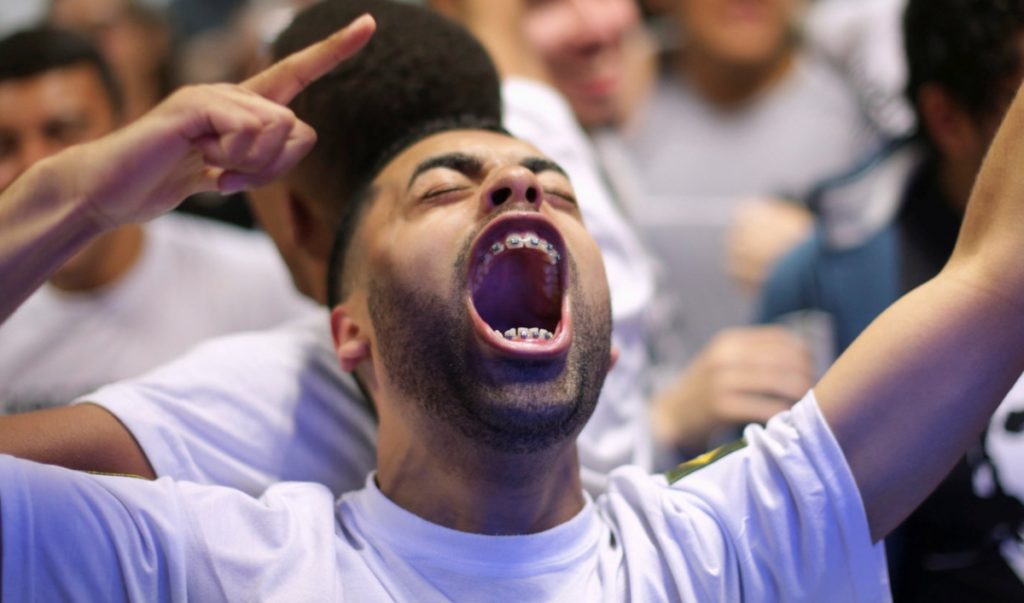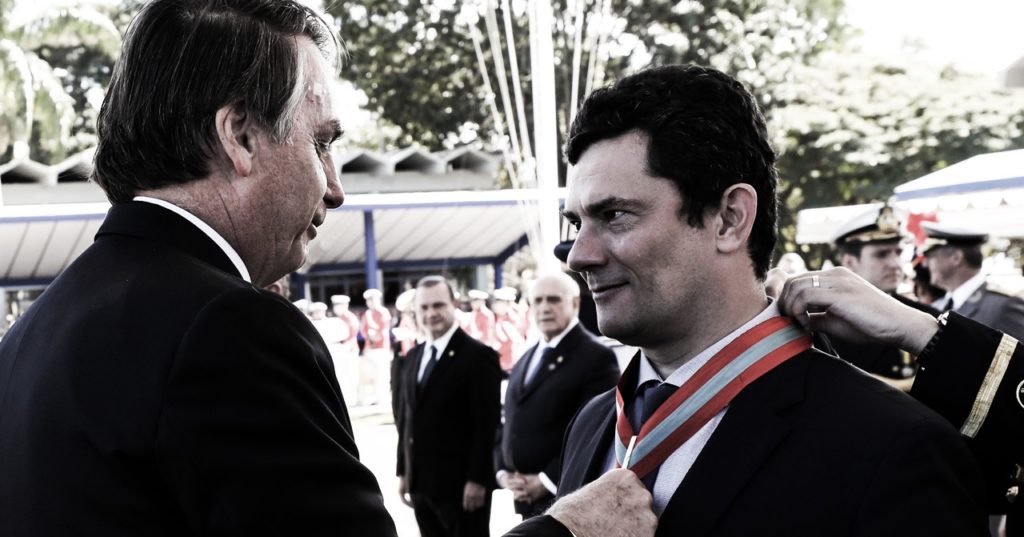RIO DE JANEIRO, BRAZIL – With or without Bolsonaro, the nationalist right is strong in Latin America’s largest country. Some academics who have tracked its evolution recently founded the Observatory of the Extreme Right in Brazil, dedicated to studying a political current that for now feels largely represented by Jair Bolsonaro.
But it is clear, its members say, that it will continue to exist and make noise in national politics if the head of state, for whatever reason, decides not to run in the 2022 elections – a hypothesis that circulates with some intensity in some political circles – or, in another possible scenario, is defeated in the elections.
The Observatory’s coordinator is Odilón Caldeira Neto, a professor of contemporary history at the Federal University of Juiz de Fora in the state of Minas Gerais. In an interview with La Nación newspaper, the specialist said that “Brazilian neo-Nazism emerged strongly from the democratic transition [that began in 1985] and has many facets.”

“Brazil is not just part of a phenomenon that contains elements of an international right-wing agenda. There is a history of the Brazilian extreme right. We integrate, but we also export our elements,” Caldeira Neto explains. For the professor, the movement led in the U.S. by former President Donald Trump and publicly revered by Bolsonaro is “just the latest chapter in a broader phenomenon that has indigenous elements in Brazil.”
His colleague Michel Gherman, coordinator of the Center for Jewish Studies at the Federal University of Rio de Janeiro (UFRJ), shares this theory and lists some of the factors that have made the extreme right so widespread in Brazil: “The strengthening of the left and the need to destroy it; the implementation of the so-called racial quotas, which for the first time in 2018 resulted in more black than white students in Brazilian federal universities; and the effort of this new right to rewrite the Brazilian past, eliminating, for example, any sense of guilt for the long years of the slave system.”
Bolsonaro’s rise to power, according to the two experts, has strengthened movements that began to come out publicly about a decade ago. The UFRJ professor recalls that “Nazism and far-right movements, in general, have a central idea, which is resentment. The belief that people could be better off if there were not others, blacks, Jews, homosexuals, women.”
Data from the nongovernmental organization Anti Defamation League (ADL) show that between 2018 and 2022, cases of anti-Semitism in Brazil increased by more than 300%.
In the same period, the number of neo-Nazi groups increased by 90%. “This didn’t start with Bolsonaro, and it won’t end the day he leaves power. In the Observatory, we want to study what models of extreme right Brazil is already exporting to other countries in the region, such as Chile and Argentina,” Caldeira Neto says.
Anthropologist Adriana Dias of the University of Campinas (Unicamp) is constantly monitoring neo-Nazi groups in Brazil. According to her research, there are currently 50 groups and 530 cells (made up of people who live in the same city or municipality) spread throughout the country. In 2019, the year Bolsonaro became president, the number of cells was 334, and in three years, there was a 158% increase.
Another NGO that is very attentive to the increase of groups spreading hate speech in Brazil is SaferNet. In 2019, according to their data, they received and processed 1071 anonymous complaints about neo-Nazi expressions in Brazilian social networks, which, if discovered, can be the subject of criminal charges.
Last year, there were 9004 complaints. Experts argue that hate speech is radicalized, primarily promoted by the president and his supporters. All these groups operate on the so-called Deep Web, where Brazilian laws do not reach them.

Law 7716, passed on January 5, 1989, criminalizes the production, marketing, distribution, or dissemination of symbols, emblems, or propaganda with Nazi symbols.
A few years ago, historian Ana Maria Dietrich of the Federal University ABC in São Paulo wrote “Tropical Nazism”. She reveals that Brazil had the most prominent Nazi party headquarters outside Germany between 1928 and 1937.
The Brazilian party was represented in 17 Brazilian states. According to other studies, Nazi slogans penetrated the world of the military in the 1960s and 1970s, for example, in the paratrooper brigade in the state of Rio de Janeiro, which President Bolsonaro passed through, among other members of his government.
For many professionals, the head of state activated an imaginary social phenomenon in Brazil that had never been recognized by many academics and intellectuals. Bolsonaro’s election in 2018 prompted many of them to study and understand what had happened in the country.
Today, it can be said almost as a blanket statement that the nationalist right has always been present. Still, it did not have a leader who represented it for a long time and allowed it to come to the fore as it did in the last presidential election.
Bolsonaro is still seen as the leader of all these movements, but the Brazilian far-right seems to go far beyond the president. For some, former Justice Minister Sergio Moro, who is already running for president in the 2022 elections, could be battling Bolsonaro for leadership.
The former Lava Jato judge has been building his support on the right, adding military figures to his team who have stood by Bolsonaro, including General Carlos Alberto dos Santos Cruz, who left the Planalto Palace five months after the government took office due to disagreements with one of the president’s sons.
Moro expects other military officers to join his campaign, causing significant damage to the president’s support base. Moro also has a broad reach in the financial community, which is increasingly dissatisfied with the performance of Economics Minister Paulo Guedes and thus the Bolsonaro government.

The former minister makes no mention of neo-Nazi groups. Still, those who know him say his ambition for power is gigantic and could lead him to adopt a more extreme discourse if his political calculus suggests that a more significant turn to the far-right could benefit him.
Last week, Moro said, “We will value the armed forces; we must respect them as an institution of the state and never abuse them for personal ambitions or electoral interests. The armed forces belong to the Brazilian people and not to any government.”
A direct message to the head of state, who declared the next day that the military “stands for the certainty that we can dream of better times.”
Today, no one doubts that the right and the extreme right carry enormous weight in Brazilian politics. Bolsonaro has been encouraged to express their ideas publicly, and nothing seems to indicate that this phenomenon, which surprised many in 2018, has weakened or could even disappear. The opposite is true.
With information from La Nacóon

